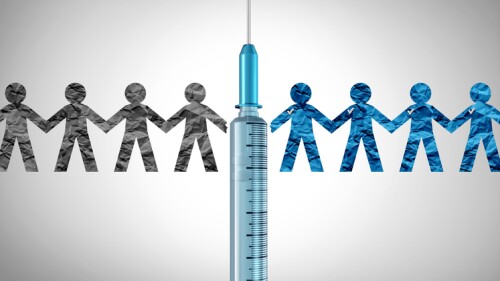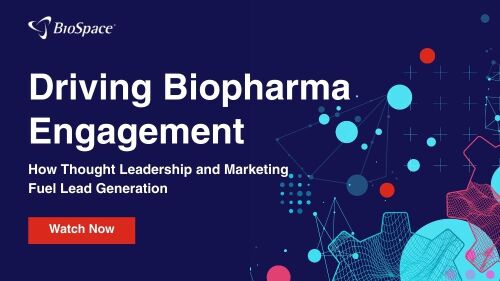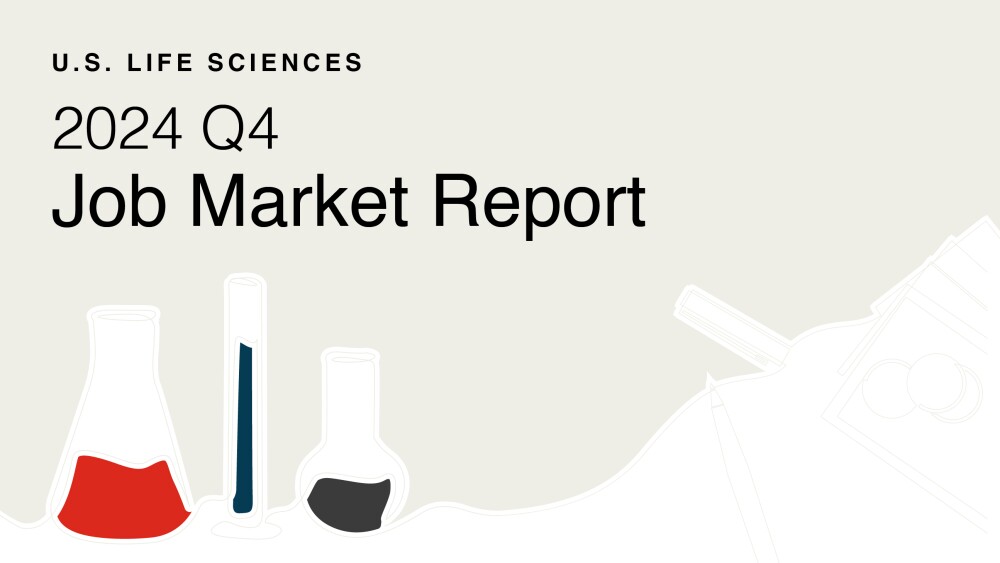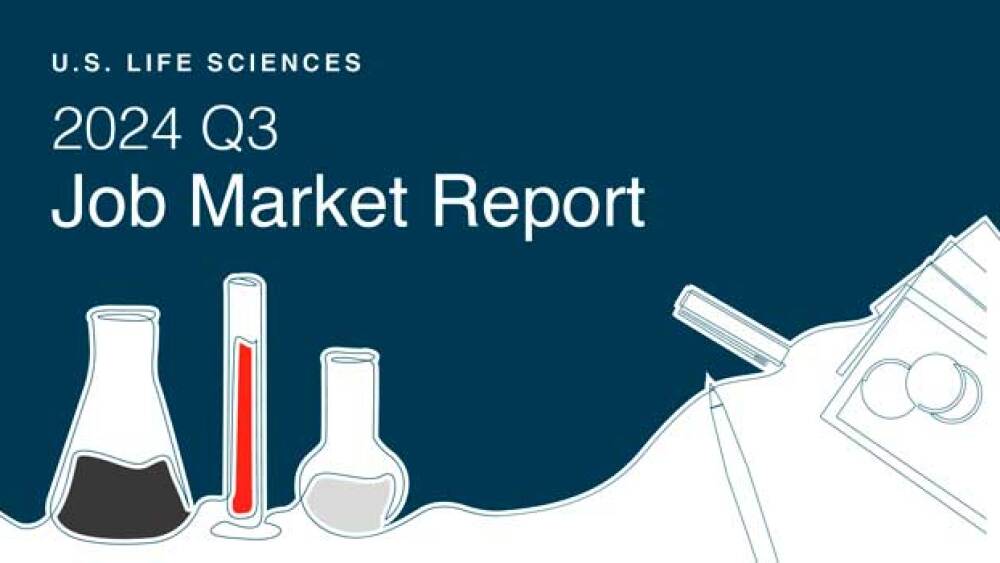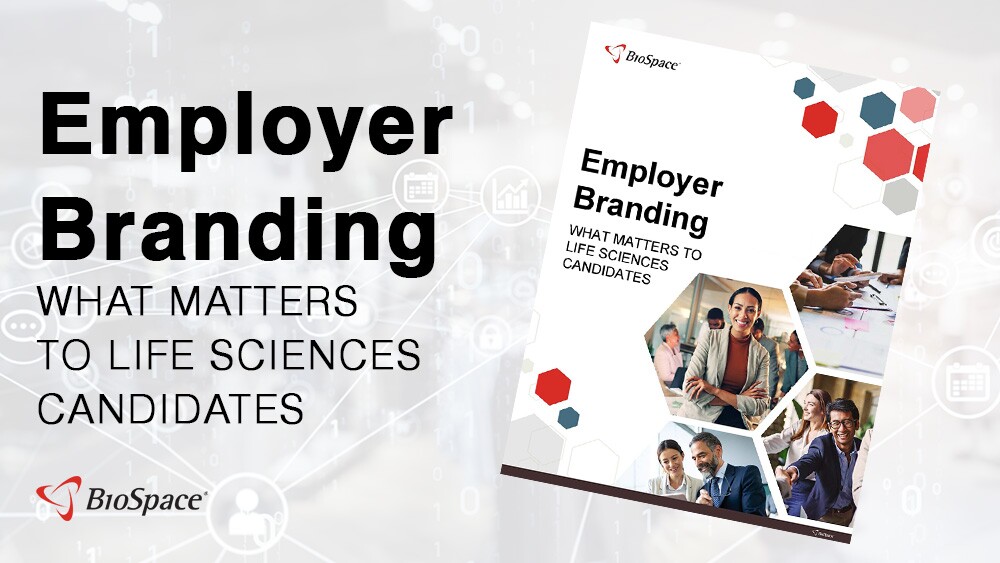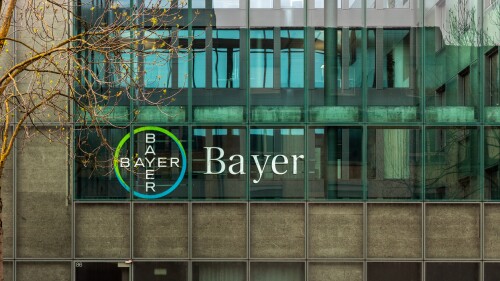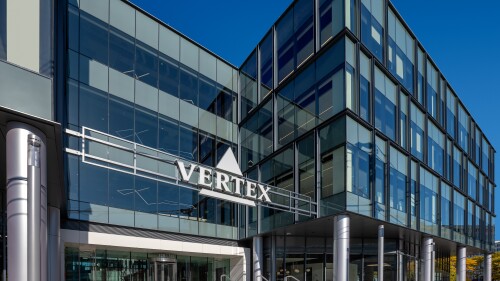Speaking on Bloomberg TV on Monday, FDA Commissioner Marty Makary contradicted recent reporting that suggested the agency was planning to add a black box label—its most serious warning—to COVID-19 vaccines.
The star of the agreement targets a specific type of tau protein, helping to prevent toxic accumulation in the brain while also preserving the function of healthy tau.
Kyverna plans to submit mivocabtagene autoleucel to the FDA for approval in the first half of 2026. If approved, it would be the first CAR T therapy for an autoimmune disease.
Analysts at Jefferies called the approval “highly significant,” estimating it could add $2 billion to $3 billion to peak Enhertu sales.
Ambros Therapeutics’ non-opioid bisphosphonate analgesic, already approved in Italy, will soon begin a pivotal test in the U.S.
Johnson & Johnson, which did not apply for the national priority voucher, was granted the ticket based on results from a Phase III study testing Tecvayli plus Darzalex in patients with relapsed or refractory multiple myeloma.
FEATURED STORIES
Innovative outcome measures coupled with a focus on patient-centered clinical differentiation can help the biopharma industry make meaningful progress in the highly complex area of neuroscience.
Days after Johnson & Johnson’s posdinemab failed to slow clinical decline in patients with Alzheimer’s disease, Eisai Chief Clinical Officer Lynn Kramer expressed unwavering conviction in his company’s own anti-tau asset, while others suggest the Alzheimer’s field is heading in a completely different direction.
Nearly 90% of senior leaders who were at the FDA a year ago are no longer with the agency, a BioSpace analysis shows. None remain from the Office of the Commissioner.
Early decisions about manufacturing and supply chains could prove costly as a company reaches the commercial stage.
Venture capital flow to women-founded companies has stabilized in the post-pandemic environment. BioSpace looks back at five companies that have nabbed the most over the past two decades.
While the TrumpRx deals only cover Lilly and Novo for now, the agreements are good for any cardiometabolic biotechs waiting in the wings, according to a new 2026 preview report from PitchBook.
LATEST PODCASTS
In this episode presented by PII, BioSpace’s head of insights discusses how to relieve clinical trial patients of technological burden to improve compliance with guests Oliver Eden and Travis Webb.
Pfizer and Novo Nordisk continue to fight for ownership of obesity startup Metsera; CDER Director George Tidmarsh leaves his position amid an ongoing probe into his “personal conduct”; FDA reverses course on approval requirements for uniQure’s Huntington’s gene therapy; Sarepta’s exon-skipping Duchenne muscular dystrophy drugs fail confirmatory study.
In this episode presented by Element Materials Technology, BioSpace’s head of insights discusses how China, historically focused on manufacturing, is increasingly becoming an innovation leader, particularly in pharmaceuticals, with guests Dr. Jihye Jang-Lee and Dr. Khanh Courtney. Ultimately, balanced strategies involve domestic capacity investments coupled with global collaboration.
Job Trends
The biopharma job market remains challenging, based on BioSpace data. In August, job postings live on the website dropped 32% year over year. In addition, during the first eight months of 2025, over 26,000 people were laid off or projected to be laid off.
Subscribe to GenePool
Subscribe to BioSpace’s flagship publication including top headlines, special editions and life sciences’ most important breaking news
SPECIAL EDITIONS
Year-over-year BioSpace data show there were fewer job postings live on the website in the fourth quarter of 2024, and the decrease was higher than the third quarter’s drop.
The J.P. Morgan Healthcare Conference started off with a flurry of deals that reinvigorated excitement across the biopharma industry. Johnson & Johnson moved to acquire Intra-Cellular Therapies for $14.6 billion, breaking a dealmaking barrier that kept Big Pharma’s 2024 biotech buyouts to under $5 billion.
In this deep dive BioSpace explores the opportunities and challenges presented by the FDA’s accelerated approval program.
DEALS
-
The CRO market in the APAC region is thriving, particularly in China, due to intense clinical trial and innovation development, with Western investors and pharma leaning in.
-
Drug candidates don’t usually move among Big Pharma, but these five biotechs helped facilitate such hand-offs, scooping up assets from one pharma on the cheap before being bought out for billions by another.
-
Halda Therapeutics is developing oral assets for prostate and lung cancer. The deal comes after Johnson & Johnson set an ambitious goal for its oncology sales by 2030.
-
The companies have yet to disclose how many programs they plan to collaborate on or what indications they will prioritize.
-
A day after Pfizer closed its hotly contested Metsera deal, Lundbeck has made an unsolicited offer to steal Avadel Pharmaceuticals away from Alkermes.
WEIGHT LOSS
-
Previous mega blockbusters took years to reach their peak sales. Lilly’s tirzepatide franchise is on course to exceed them just a few years in.
-
The drugmaker’s dominance of the obesity market is fueling predictions that years of growth lie ahead.
-
If Eli Lilly’s obesity pill orforglipron is approved and priced around $200 per month, analysts at Truist predict patients will flock to it.
-
Novo Nordisk goes “on the offensive” following Trump deal that also included rival Eli Lilly, putting an exclamation point on rapidly declining GLP-1 drug prices. Experts say the unusual situation makes it hard to predict what’s next.
-
Speaking at a conference this morning, Pfizer CEO Albert Bourla suggested that Metsera’s therapies could begin hitting the market in 2028.
POLICY
-
A spokesperson for the FDA said the agency is “considering a wide range of options to support American innovation.”
-
Top Trump administration officials have taken issue with Marty Makary’s management style, pointing to infighting between his appointees and the difficulty to get a hold of the FDA commissioner.
-
Representatives from companies such as Sanofi and Forge Biologics point to the potential for PreCheck to drive activation of idle production capacity and help companies that are already building plants.
-
Following restricted vaccine approvals and changes to CDC immunization schedules, Merck, Pfizer, GSK and Sanofi are all suffering revenue hits to their vaccine programs.
-
The upheaval of the Health and Human Services workforce and leadership leaves much to be desired in terms of delivery, recently retired FDA Chief Information Officer Vid Desai tells BioSpace, but the regulatory agency is evolving to be more open to much needed change.
Learn about making the most of interview feedback, navigating bonus clawbacks and networking for niche roles.
Layoffs leave more than empty desks—they leave uncertainty, guilt and anxiety. Three simple steps will help you regain control of your work, well-being and career.
As they navigate a competitive job market, biopharma professionals are making four key interview mistakes, according to two talent acquisition experts. They discuss those errors and offer tips for how to get those critical conversations right.
Executive coaches can help executives take their game to the next level in four key ways, from improving their self-awareness to reshaping their thinking.
A BioSpace LinkedIn poll found that job ghosting and ghost jobs are the biggest pet peeves for applicants now. Recruitment Manager Greg Clouse offers advice on dealing with them.
Plus, how to use your network effectively and create job opportunities before they exist
HOTBEDS
REPORTS
Landing a job remains challenging for life sciences professionals, according to a new BioSpace report. While 59% of surveyed organizations are actively recruiting, nearly half of unemployed survey respondents had been out of work for at least six months, and 20% of surveyed employers expect to lay off employees this year.
Year-over-year BioSpace data shows there are fewer job postings live on the website and far more competition for them.
CANCER
-
Tecvayli plus Darzalex led to an 83% boost to progression-free survival versus the current standard therapy in relapsed or refractory multiple myeloma, results analysts at Guggenheim Securities called “remarkable.”
-
After GSK subsidiary Tesaro filed a lawsuit Thursday claiming that AnaptysBio breached “certain requirements” under their 2014 license agreement involving GSK’s Jemperli, Anaptys responded Friday morning.
-
The nod brings Bayer face-to-face in the market with Boehringer Ingelheim and AstraZeneca, each of which has its own HER2 blocker for non-small cell lung cancer.
-
With positive data from the Phase III HERIZON-GEA-01 study, Zymeworks and Jazz Pharmaceuticals will file an approval application for Ziihera in the first half of 2026 for the treatment of gastroesophageal adenocarcinoma.
-
Artios Pharma is working on a pipeline of oncology assets, led by alnodesertib, currently being tested for second-line pancreatic cancer and third-line colorectal cancer.
NEUROSCIENCE
-
Analysts agree that the failure of Novo Nordisk’s semaglutide to reduce Alzheimer’s disease progression removes a “modest” or “perceived” overhang on Biogen and the anti-amyloid antibody class in general, clearing the way for increased uptake of Leqembi and Eli Lilly’s Kisunla.
-
“We felt we had a responsibility to explore semaglutide’s potential, despite a low likelihood of success,” Martin Holst Lange, Novo’s R&D chief, said on Monday.
-
NervGen will meet with the FDA early next year to align on a regulatory path forward for NVG-291 in chronic spinal cord injury.
-
While expressing disappointment, William Blair analysts were unsurprised by the Phase II failure, having assigned the VISTA study a high level of risk given the “mixed” performance of a similar drug in a prior multiple sclerosis study.
-
Aspen is now also considering the possibility of an initial public offering next year in an effort to bring its cell therapy to the market.
CELL AND GENE THERAPY
-
The FDA previously placed two clinical studies on hold, including the Phase III trial in which the liver toxicity occurred. Intellia is working with experts to create a risk management program for nex-z.
-
Pfizer and Novo Nordisk continue to fight for ownership of obesity startup Metsera; CDER Director George Tidmarsh leaves his position amid an ongoing probe into his “personal conduct”; FDA reverses course on approval requirements for uniQure’s Huntington’s gene therapy; Sarepta’s exon-skipping Duchenne muscular dystrophy drugs fail confirmatory study.
-
The potential approval of Vertex’s IgAN therapy povetacicept in 2026 comes amid launch headwinds for the company’s non-opioid pain medicine Journavx and gene therapy Casgevy.
-
With a 100% response rate in a Phase II study, KYV-101 sets a new efficacy bar in generalized myasthenia gravis, according to analysts at William Blair.
-
The clinical hold comes days after Intellia voluntarily paused enrollment and dosing in the same two studies.




